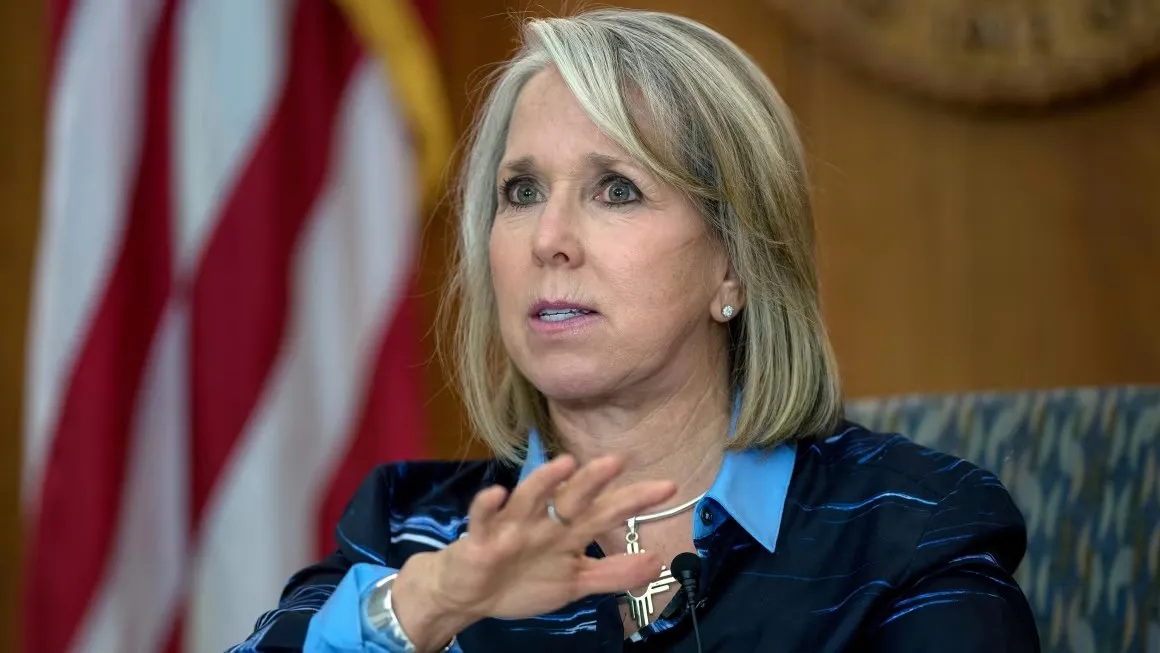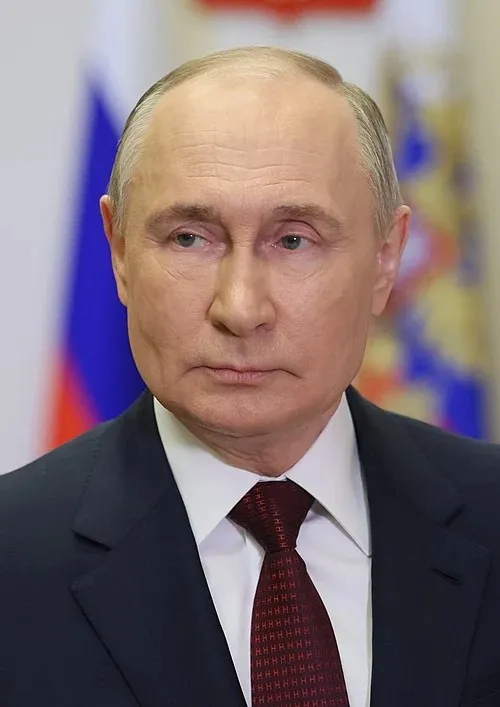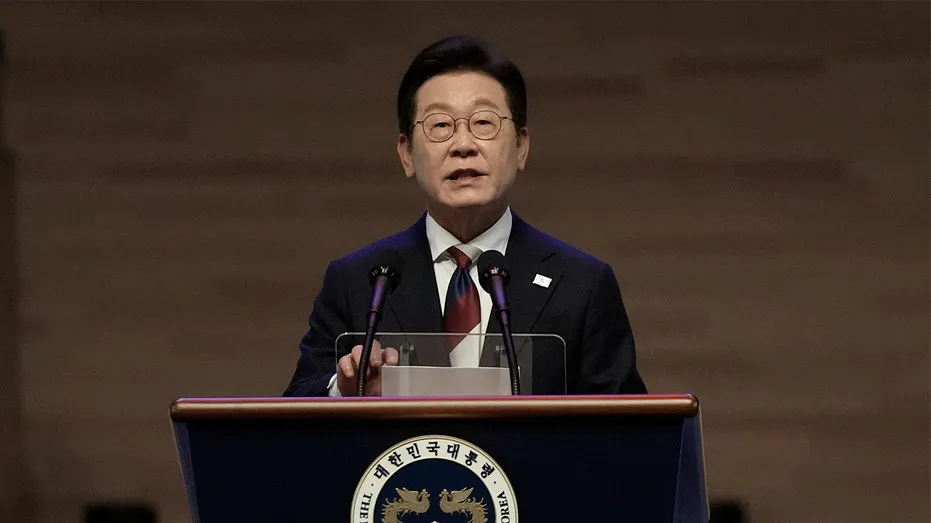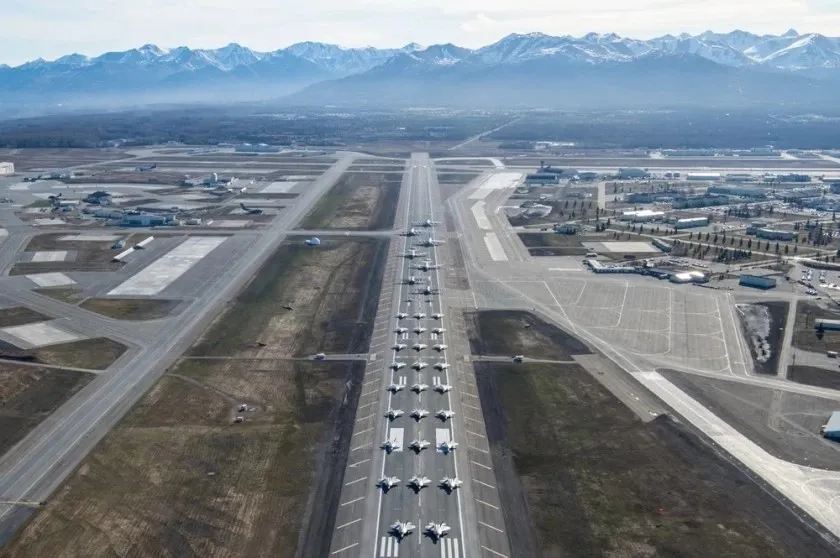August 10-16, 2025
New Mexico’s State of Emergency: A Response to Violence and Drug Trafficking in Rio Arriba County / Putin Signals Openness to Nuclear Arms Deal Ahead of Alaska Summit with Trump / South Korea’s Lee Jae Myung Seeks to Ease Tensions with North Korea through Military De-escalation

"RECAP is a deep dive into the top Intel shared on social media, spotlighting what resonated most with my audience. In this segment, I unpack why these topics matter, break down my findings, and provide the latest updates on the stories driving the conversation."
Today's Hits.
- New Mexico’s State of Emergency: A Response to Violence and Drug Trafficking in Rio Arriba County
- Putin Signals Openness to Nuclear Arms Deal Ahead of Alaska Summit with Trump
- South Korea’s Lee Jae Myung Seeks to Ease Tensions with North Korea through Military De-escalation
New Mexico’s State of Emergency: A Response to Violence and Drug Trafficking in Rio Arriba County
Just two days after President Donald Trump’s controversial move to federalize Washington, D.C.’s police force to combat rising crime, New Mexico Governor Michelle Lujan Grisham declared a state of emergency in Rio Arriba County on August 13, 2025. This sweeping executive action, centered in a region plagued by violent crime and drug trafficking, was a direct response to urgent pleas from local and tribal leaders overwhelmed by a surge in public safety threats. The declaration, which allocates $750,000 to bolster law enforcement and emergency management, highlights the severity of the crisis in Rio Arriba County, including the city of Española and surrounding Pueblo communities, where fentanyl-driven overdoses and escalating violence have strained local resources to their breaking point.
The situation in Rio Arriba County paints a grim picture of a community in distress. Police calls in Española have more than doubled over the past two years, with dispatches to businesses quadrupling, signaling a sharp rise in criminal activity. The county leads New Mexico in overdose deaths, largely fueled by fentanyl, exacerbating issues like homelessness and family instability. Governor Lujan Grisham’s executive order authorizes the Department of Homeland Security and Emergency Management to coordinate resources, including potential National Guard deployment, to support local law enforcement with overtime pay, new equipment, and coordinated policing efforts. Local leaders, including Santa Clara Pueblo Governor James Naranjo, have emphasized the toll of drug abuse on their communities, noting its devastating impact on children and families. This marks the second time in 2025 that Lujan Grisham has mobilized the National Guard, following a similar deployment in Albuquerque to address juvenile crime and fentanyl issues.
The timing of the governor’s action has sparked debate, as it follows her public criticism of Trump’s D.C. police takeover as “massive executive overreach.” Critics, including New Mexico Republican Party Chairwoman Amy Barela, argue that Lujan Grisham’s emergency declaration mirrors the urgency and scope of Trump’s actions, raising questions about consistency in her stance on executive intervention. While her order is framed as a cooperative response to local requests, contrasting with Trump’s unilateral approach, the parallels highlight the complexities of addressing crime through emergency measures. For Rio Arriba County residents, the focus remains on whether this intervention will deliver lasting solutions to a crisis that has long plagued the region, with hopes that state resources and potential National Guard support will restore safety and stability.

Putin Signals Openness to Nuclear Arms Deal Ahead of Alaska Summit with Trump
On August 14, 2025, Russian President Vladimir Putin expressed cautious optimism about the possibility of a new nuclear arms control agreement with the United States, just days before a high-profile summit with U.S. President Donald Trump in Anchorage, Alaska. Speaking to senior Russian officials, Putin praised the Trump administration’s “energetic and sincere efforts” to end the ongoing war in Ukraine, suggesting that progress on this front could pave the way for broader discussions on strategic offensive weapons control. This comes at a critical juncture, as the New Strategic Arms Reduction Treaty (New START), the last remaining nuclear arms control agreement between the two nations, is set to expire in February 2026, raising fears of an unconstrained nuclear arms race. Putin’s remarks signal a strategic pivot, linking nuclear arms negotiations with efforts to resolve the Ukraine conflict, potentially reshaping U.S.-Russia relations and global security dynamics.
The New START treaty, which limits both nations to 1,550 deployed strategic nuclear warheads, has been a cornerstone of nuclear stability since its inception in 2011. However, Russia’s suspension of participation in 2023 and the cessation of mutual inspections have strained the agreement’s framework, heightening tensions. Putin’s comments suggest a willingness to either extend New START or negotiate a successor deal, framing arms control as a “parallel track” to peace talks on Ukraine. Analysts, such as Paul Dean of the Nuclear Threat Initiative, view the Alaska summit as a pivotal opportunity to prevent a destabilizing arms race, emphasizing the importance of maintaining verification measures like on-site inspections to avoid miscalculations that could lead to catastrophic consequences. Meanwhile, Trump has acknowledged the treaty’s impending expiration as a “problem for the world,” indicating his openness to maintaining its limits, though he has not outlined specific terms.
Despite the potential for progress, significant challenges remain. European allies and Ukraine are wary of any deal that might prioritize U.S.-Russia bilateral interests over Kyiv’s sovereignty, with Ukrainian President Volodymyr Zelenskyy warning against agreements made without Ukraine’s direct involvement. Putin’s framing of arms control as part of a broader peace effort could be a tactical move to dilute Western unity and alleviate sanctions pressure, a strategy reminiscent of Soviet-era diplomacy. The Alaska summit, set to begin with a one-on-one meeting followed by broader delegation talks and a joint press conference, will also address economic cooperation and the Ukraine conflict, but the nuclear issue looms large. With both leaders controlling over 90% of the world’s nuclear warheads, their decisions could either stabilize or escalate global security risks, making the outcome of these talks a defining moment for international relations.

South Korea’s Lee Jae Myung Seeks to Ease Tensions with North Korea through Military De-escalation
On August 15, 2025, South Korea’s newly elected liberal president, Lee Jae Myung, announced a bold initiative to reduce tensions with North Korea by scaling back certain military activities along the heavily militarized border and pledging to restore the September 19 Comprehensive Military Agreement of 2018. Speaking during a ceremony marking the 80th anniversary of Korea’s liberation from Japanese colonial rule, Lee emphasized that prolonged hostility benefits neither side and outlined steps to rebuild trust, including halting anti-North Korea propaganda broadcasts and leaflet campaigns. This move, part of a broader effort to revive dialogue with Pyongyang, contrasts sharply with the hardline policies of his predecessor, Yoon Suk Yeol, and signals a return to the conciliatory approach of former President Moon Jae-in, under whom the 2018 agreement was signed.
The 2018 September 19 Comprehensive Military Agreement, signed during a period of diplomatic thaw between the two Koreas, established measures such as buffer zones on land and sea, no-fly zones, cessation of military drills near the border, and the maintenance of inter-Korean hotlines to prevent accidental clashes. However, the pact unraveled amid escalating tensions, with North Korea abandoning it in November 2023 and South Korea suspending it in June 2024 after Pyongyang’s provocative trash-laden balloon launches. Lee’s commitment to restoring the agreement involves gradual steps to rebuild military trust, such as dismantling propaganda loudspeakers and delaying joint military exercises with the United States, which have long been a point of contention for North Korea. Despite these efforts, North Korean officials, including Kim Yo-jong, have dismissed Lee’s gestures as a “pipe dream,” casting doubt on Pyongyang’s willingness to reciprocate.
The announcement has sparked mixed reactions. Supporters view Lee’s approach as a pragmatic step toward de-escalation, potentially averting accidental conflicts and fostering conditions for renewed inter-Korean cooperation. Critics, however, including some analysts and opposition figures, argue that Lee’s policies risk weakening South Korea’s defenses, especially given North Korea’s continued nuclear ambitions and its growing alignment with Russia. Posts on Social Media reflect this divide, with some users warning that reviving the 2018 agreement could compromise South Korea’s security at the Demilitarized Zone (DMZ). Others note that Lee’s actions, such as removing border loudspeakers, have prompted limited reciprocal gestures from North Korea, though these are seen as insufficient by skeptics. With Lee also navigating delicate relations with Japan and an upcoming summit with U.S. President Donald Trump, his push for peace faces significant challenges, both domestically and internationally, as he seeks to balance diplomacy with deterrence.

What else is smoking?


👋 Follow Me!
If you enjoy my content, please follow me on Social Media and consider sharing this content with your friends! I hope you have a great day! - Karl Bullock "That Smoke Pit Veteran"
X / Threads / Facebook / Instagram
Enjoyed the content? Help keep That Smoke Pit Veteran alive with a kind donation! Your support means the world.
Views are solely those of That Smoke Pit Veteran, not reflecting the U.S. Government or Defense Department's stance, policies, or endorsements. Content is for informational & entertainment purposes only, not affiliated with or endorsed by any government.






